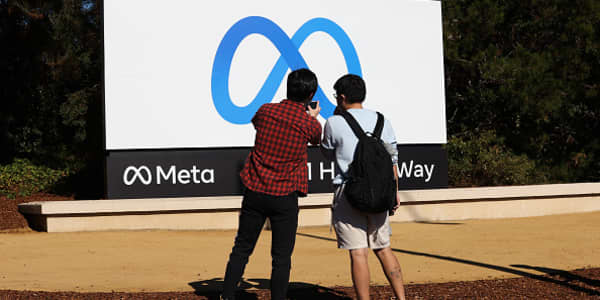
Cloud computing has been the hottest growth business for some of the world's largest technology companies, including Amazon, Microsoft and Google, but a top corporate buyer of cloud services says a slowdown is coming.
P&G chief information officer Javier Polit said he expects the booming cloud computing market to contract over the next five years, speaking on a panel at the eMerge Americas conference in Miami on Monday. P&G, specifically, is looking to become more efficient in use of multiple providers as a way to bring down costs and make analytical insights more efficient.
P&G works with Amazon Web Services (AWS), Google Cloud, Microsoft Azure, SAP, and Dell Technologies' Virtustream cloud service, but Polit indicated costs are high using multiple cloud providers in a world geared to data analysis and AI insights.
"We do partner up with [Microsoft] Azure; we partner up with Amazon, Google, SAP," said Polit, who is also a member of the CNBC Technology Executive Council. "And through all the cloud complication, you could think about consumer data sitting in one repository, customer data sitting in another repository, ingress and egress of data as data scientists start looking at the data to mine it, to get some actual insights. There are a lot of complications and every egress and ingress costs associated with it."
From an AI perspective, as things are changing to data science and more mining, we could potentially see a shift moving into Google's platform in the future.Javier PolitP&G chief information officer
P&G's newest relationship in the cloud is with Google Cloud, a deal that was first announced a few weeks ago. Polit indicated it is a cloud relationship that P&G will strengthen as the landscape shifts in the coming years.
"I do believe, though, looking forward about five years, there will be some contraction ... changes in regards to the landscape. Amazon came out first with cloud strategies many, many years ago, and you could say Azure followed and Google ... but from an AI perspective, as things are changing to data science and more mining, we could potentially see a shift moving into Google's platform in the future. They are all big bets, and we are betting on all three today, and I would argue in the next 18 to 24 months that landscape will change for us."
A P&G spokesperson said data and analytics are core to the company's digital transformation strategy. "We want reliable, granular data combined with algorithm-enabled insights to inform business decisions across the globe in near real-time."
The spokesperson did not indicate that P&G has any plans to only use Google for cloud services in the future. Polit could not be reached for additional comment.
Amazon and Microsoft continue to post huge cloud growth numbers. Amazon Web Services reported 41% revenue growth in cloud, and its contribution to Amazon total sales went up from 10% to 13% in Q1. Microsoft Azure sales went up 73% in Q1. Google does not break out its cloud revenue in earnings. The Monday earnings report from Google parent company Alphabet showed greater signs of weakness than strength, with shares plunging more than 7%. On their earnings call Alphabet executives cited product changes, in particular at YouTube, as a reason for the earnings weakness.
Google is a distant third in total cloud spend behind Microsoft Azure and AWS but recently touted its new multicloud services platform, in addition to various AI and security solutions that position them to challenge Amazon's stronghold on the cloud business. Some believe that Google's advantages in AI may enable them to overtake Microsoft and AWS, which currently claim a 16% and 32% market share in cloud spend, respectively, which seemed to match Polit's comment at the eMerge Americas conference.
'Not the norm' to spread bets across all major cloud platforms
Dave Bartoletti, principal analyst at Forrester Research, said it is not the norm for most companies to spread bets across all the major cloud platforms the way that P&G does, though the largest companies in the market are more likely to do so.
"We do see many large enterprises adding additional cloud platforms to their primary platform when that vendor offers something the client finds differentiating," Bartoletti said.
He said Google's leadership in "pushing the envelope on AI" is well known and has a deep, solid bench of data scientists and AI products. But because many of Google products are open source, like TensorFlow, and customers can still run their workloads on AWS or Azure, expanding the reach of Google products, that would make it a challenge for Google to convince customers the best place to run Google AI is on Google's own cloud.
In fact, according to a report from Nucleus Research, 85 percent of TensorFlow projects in the cloud currently runs on AWS.
Bartoletti said he does not foresee a contraction from the public cloud market anytime soon, forecasting continued growth of more than 20% this year.
This story has been updated to reflect that P&G works with Amazon Web Services (AWS), Google Cloud, Microsoft Azure, SAP, and Dell Technologies' Virtustream cloud service. An earlier version of this article misstated the relationship between SAP and Dell's Virtustream.






